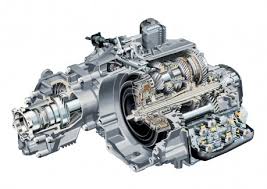Mobile:+86-311-808-126-83
Email:info@ydcastings.com
impeller wheel
The Impeller Wheel A Key Component in Fluid Dynamics
The impeller wheel is a crucial element in various engineering applications, particularly in fluid dynamics, where its design and functionality significantly influence the efficiency of systems such as pumps, turbines, and compressors. Understanding the construction and operation of the impeller wheel provides insight into its vital role in transporting fluids and generating energy.
Structure and Design
An impeller wheel typically comprises blades arranged around a central hub, which rotates to generate movement in the fluid. The number of blades, their shape, and the angle at which they are positioned all play a critical role in determining the performance characteristics of the impeller. For example, blades that are curved can enhance fluid flow and increase the efficiency of energy transfer. Additionally, the diameter of the impeller is paramount; larger diameters can handle bigger volumes of fluid but may result in increased energy consumption.
Material selection is also essential when designing an impeller wheel. Depending on the application, impellers may be made from metals, plastics, or composites. Metals like stainless steel are often used in applications where strength and durability are required, while lightweight plastics may be used in smaller, less demanding systems.
Operating Principles
The fundamental principle behind the operation of an impeller wheel is the conversion of mechanical energy into kinetic energy, which then translates into fluid motion. When the impeller spins, the blades push against the fluid, increasing its velocity and directing it towards a discharge outlet. This process creates a low-pressure area at the impeller's center, drawing in more fluid to maintain continuous flow—a principle akin to the behavior of a centrifugal pump.
Depending on the design and the intended application, impeller wheels can function in different modes
. For instance, in centrifugal pumps, the impeller accelerates fluid outward from the center, whereas in certain turbines, the impeller may work to extract energy from a moving fluid, such as water or gas.
impeller wheel

Applications
Impeller wheels are ubiquitous in various industries ranging from water treatment to aerospace. In the water supply and sewage systems, impeller pumps ensure efficient transportation of water, enabling the functioning of urban infrastructures. In HVAC systems, centrifugal fans use impellers to facilitate air circulation, enhancing climate control in buildings.
The automotive industry also relies on impeller wheels, particularly in turbochargers, where they compress air before it enters the engine, thereby increasing its efficiency and power output. Moreover, in medical applications, impellers are integral to devices such as blood pumps used in heart-lung machines, showcasing their versatility and importance even in life-critical systems.
Challenges and Innovations
Despite their wide adoption, impeller wheels are not without challenges. Issues such as cavitation—where vapor bubbles form and collapse in the fluid—can cause damage and reduce efficiency. Engineers continuously seek innovations to mitigate these challenges, employing advanced computational fluid dynamics (CFD) simulations to optimize impeller design. These modern techniques allow for the precise modeling of fluid behavior, leading to more efficient and durable designs.
Future technologies might integrate smart materials or sensors within impeller systems, enhancing performance monitoring and predictive maintenance. Such innovations could lead to longer lifespans of impellers and reduced operational costs across many applications.
Conclusion
The impeller wheel may appear simple at first glance, yet it plays a fundamental role in a myriad of systems that drive our modern world. Its design, operation, and application are a testament to the intricate balance of engineering principles and practical requirements. As technology continues to evolve, impeller wheels will likely be at the forefront of innovation in fluid dynamics, contributing to increased efficiency and enhanced sustainability in various industries.
-
Impeller Technology That Powers Precision in Pump SystemsNewsMay.22,2025
-
Valve Durability Begins with Quality Cast Iron ComponentsNewsMay.22,2025
-
Performance Cooling with Advanced Automobile Water Pump SolutionsNewsMay.22,2025
-
How Motor Housing and Oil Pans Shape Engine PerformanceNewsMay.22,2025
-
How Metal Castings Drive Modern Manufacturing EfficiencyNewsMay.22,2025
-
Exploring the Engineering Behind Valve Body CastingsNewsMay.22,2025











